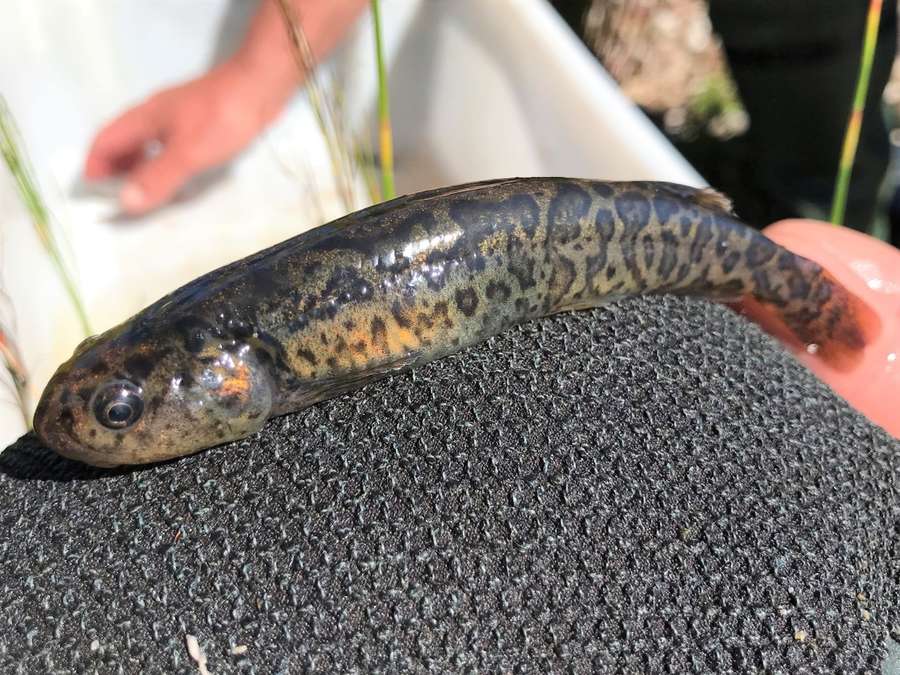IFS staff fly into Lake Oberon to check on the Pedder galaxias population

The Pedder galaxias (Galaxias pedderensis) was previously found only in the original Lake Pedder, Tasmania. Unfortunately, due to the flooding of the Huon and Serpentine catchments for hydro power generation in 1972, and with the subsequent invasion of brown trout (Salmo trutta) and climbing galaxias (Galaxias brevipinnis), the Pedder galaxias population collapsed. By 1990 they had become very rare and were thought to be almost extinct. In 1992 as a last effort to save the species, 31 fish were translocated to Lake Oberon in the Western Arthur Range. This lake provided a safe refugia free from invasive species. Subsequent monitoring of this population has confirmed the species is thriving in their new habitat. Additionally, fish were later translocated from Lake Oberon to a secondary refugia site at Strathgordon, where they are also well established.
The last survey conducted in Lake Oberon was in 2012. Through an inter-agency effort with the Parks and Wildlife Service (PWS), another survey was recently conducted this month. Inland Fisheries Service (IFS) and PWS staff arrived at Lake Oberon via helicopter. PWS staff conducted track inspections, maintenance, and the servicing/repair of infrastructure around the Southwest National Park walking tracks. IFS staff electrofished the lake sampling 52 Pedder galaxias. These fish were measured and released. The measurements showed that there were at least three year classes of fish present, and the fish were in good condition.
The Pedder galaxias was regarded as Australia’s most endangered freshwater fish. Although now extinct in its natural habitat, it is the first fish in Australia to be saved from extinction and translocated to another location in the wild. While they are still listed as critically endangered, the future of these fish continues to look positive. Thanks to the PWS for assisting with the travel logistics of this trip.